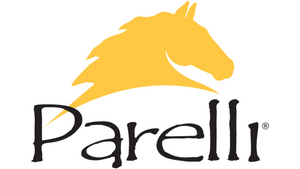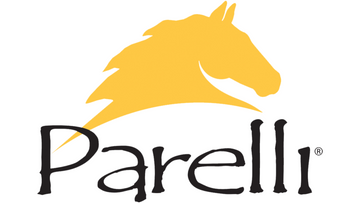
By Pat Parelli
In 1990, I wrote a book for Western Horseman entitled Natural Horse-Man-Ship, which outlined the Six Keys of Success. The Six Keys were simple: Attitude, Knowledge, Tools, Techniques, Time, and Imagination. These Six Keys still exist (and at the end of the article, I will tell you about the seventh that I discovered after I wrote the book).
Key No. 1: Attitude. An attitude is a multitude of actions and/or reactions at any given time. Therefore, everything represents an attitude. The attitude we need is to be positive, progressive, and natural.
Those ingredients are imperative in relationship with horses because that attitude will lead you to Key No. 2: Knowledge. Real knowledge (not the type of knowledge that is predicated on wives’ tales, mythology, or bovine fecal matter). This type of knowledge leads to real progress.
Knowledge will lead you to Key No. 3: Tools. Tools that you choose to use need to be effective in lengthening your body to create long-body-logic, because horses have long bodies, and we as humans have tall bodies. Learning to use the correct tools on the ground and in the saddle—or while driving horses—will create more rapport, respect, and impulsion.
It's not just about the tools, but also Key No. 4: Techniques. Correct techniques help us be easily understood by the horse. We must remember that human beings are adults that make simple things difficult. We are not only monkey-see-monkey-do-learners, but we are also pullers, grippers, and grapplers by nature. Most of the tools that are designed for horse riders—whether designed to be used on the ground or in the saddle—are designed to help us better grip, grapple, lean, and pull. We need to be lifting and pushing (not leaning and pulling).
Key No. 5: Time. I've never seen a horse wear a wristwatch. Horses live in the moment, and there at least four moments in every second. As humans, we usually live in the future (or the past) even when we are with a horse (Have you ever been at the barn and thinking about something else? My point exactly.) Horses, being great survivors, are often thinking and reacting to what's going on in that moment. Timing and feel are knowing when to be, where to be, why to be, what to do when you get there, and when to quit doing what you’re doing. RBI’s (Right Brain Introverts) need you to take more time, but LBE’s (Left Brain Extroverts) want you to take less time. You need Savvy to read the situation and develop a positive outcome.
Focus, feel, and time give us balance. That's one of the big secrets. So, this positive and progressive attitude leads to knowledge, then we start to use the tools and learn the techniques. Then we put in time, and our timing it gets better.
Key No 6: Imagination. Einstein said, “Imagination is even more valuable than knowledge”. I think this is true, because imagination is what starts in our heart, then goes to our head. It helps us visualize different solutions and outcomes. Humans are easily influenced by outside pressure like peers, television, and circumstances. See beyond the cowboy, the western saddle, the discipline, and the dirt on my boots. Instead, imagine what understanding horse psychology and how to apply love, language, and leadership in equal doses would do in your relationship with your horse.
And that leads us to Key No. 7: Support. If it had not been for the support of my mentors, Troy Henry, Tom Dorrance, Ray Hunt, Ronnie Willis, and Freddie Kannini, I would still be floundering around out there trying to pull all of this together. The wisdom that was encompassed by the philosophy shared by all these special humans with me helped accelerate my progress beyond my imagination at the time.
In my twenties, I started giving lessons on my horses. When the rider was finished and handed the horse back to me, the horse would have regressed to the rider’s ability. So, I changed my approach, and started giving clinics on rider-owned horses—That wasn't enough. Then I started making educational videos—That wasn’t enough, either.
Finally, I realized that people needed a community that would give them the support that was needed to create our own positive peer influence of like-minded horse lovers. That community has had over 200,000 students in 76 Countries around the world. It’s called the Parelli Savvy Club. It’s made up of horse-lovers of all different disciplines who all strive to be safe, have fun, and be effective with horses in an ethical and humane way.
Life is a relationship of relationships. To succeed as a human being—the ultimate predator—with the horse—the ultimate prey animal—is quite a task. But, if we follow the blueprint that is available, not only can we have a better relationship, but—by being great examples—together we can help make the world a better place for horses and the humans that love them.







